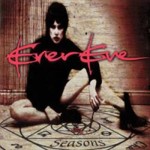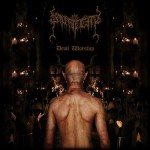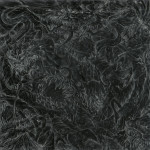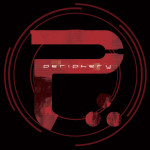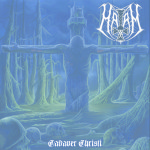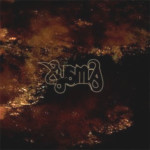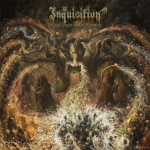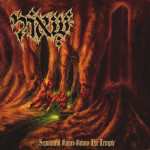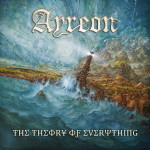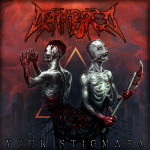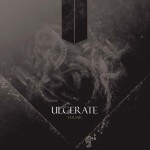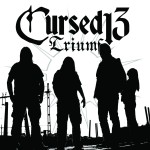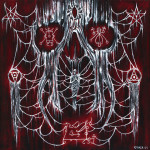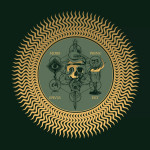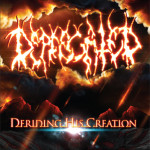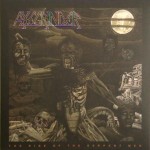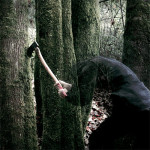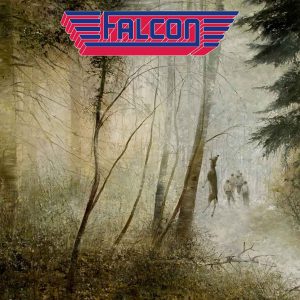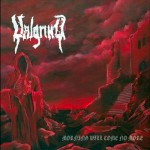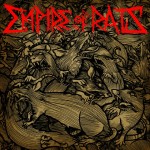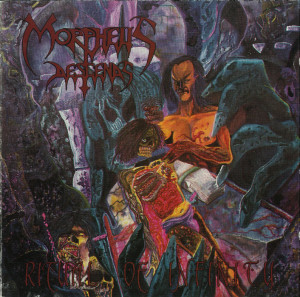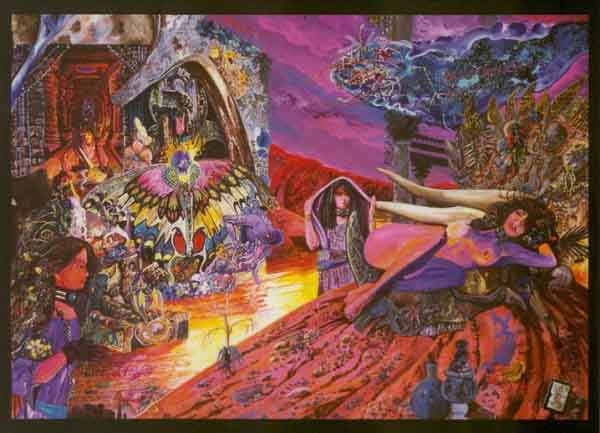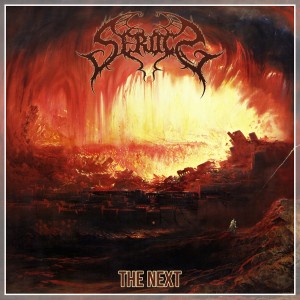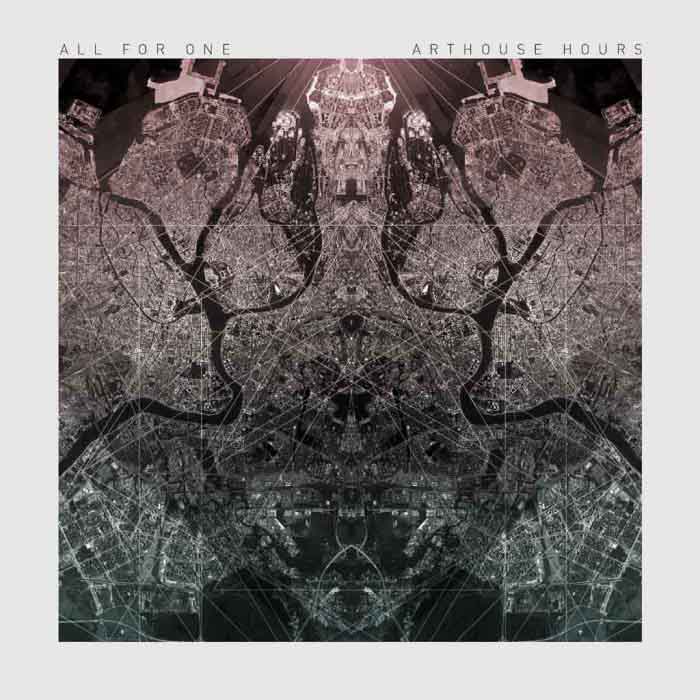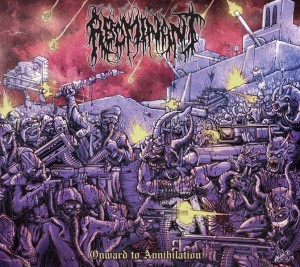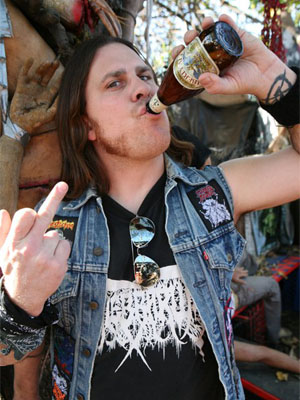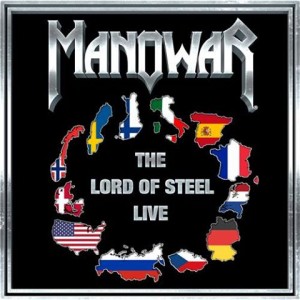What are Sadistic Metal Reviews? Heavy metal is either art, or like the rest it’s a product to make sad people feel better about their empty and pointless lives. Brutal honesty is all that separates us from that abyss. Remember, tears are a sign that you’ve really reached people…
Nuclear Blast, this is NOT “music to mangle your mind.” This is the AIDS of the music world. Cheap, hokey synths ramble under tepid saccharine guitar melodies while effete whiny crooning that makes Morrissey sound like Tom Warrior radiates in the background. You can just about hear the teenage bedrooms of America, reeking of self-pity and masturbation, where the obese and inbred listen to this. It’s OK, kid, everyone gets turned down by a fleshlight at least once. If you can imagine heavy metal with all of its soul removed, candied like one of those disgusting little fruits in a fruitcake, this would be it. There is nothing here that is metal except under the flimsiest of pretenses. “Evereve” is more like “Summer’s Eve.” Seasons could be a forerunner for HIM. If you ever hear a note of this, you’re going to need hormone replacement therapy.
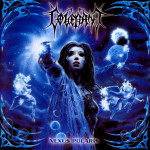 Covenant – Nexus Polaris (also released as The Kovenant – Nexus Polaris)
Covenant – Nexus Polaris (also released as The Kovenant – Nexus Polaris)
The cheese of “black metal” circa 1998 is on full display here in this one album. Considering the Dimmu Borgir membership and the touting of a drum performance by Hellhammer circa his “help, I need money and even joined Arcturus” days, you know this will be bad. The vaudevillian sideshow vibe of later Ancient and Cradle of Filth is tricked out to sound like a joyous PG rated sci-fi soundtrack is playing over a rock opera, making this all sound more absurd. Imagine the music from a children’s variety TV show but with some drunk guitarist in the background hammering out heavy metal riffs with black metal stylings as he copulates with close family members while wearing a tutu. If you heard a “black metal” parody in recent times, chances are it sounded like this.
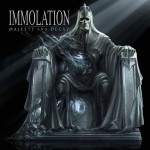 Immolation – Majesty and Decay
Immolation – Majesty and Decay
This album brings to mind Dogwin’s Law for metal: as a metal band ages, the probability of it reverting to its influences becomes one. Immolation started out as a speed metal band, then detoured into death metal for a few albums, and now is back to heavy metal but in a simplified form using death metal technique. When they did that cover of Mercyful Fate, it shook something loose, and Immolation thought, “Why spend hours fitting twisty riffs into intricate combinations?” Verse, chorus, break, solo — done! Collect check, buy motorcycle parts. This is the metal equivalent of baby food: over-cooked, pre-ground, sweetened and without any difficult parts. Gone are the wildly imaginative riffs and catcomb-like song structures. Instead it’s The Jets covering Bryan Adams put into power chord riffs. Embarrassed by their own non-output, Immolation tries to hide the emptiness by getting emo on the choruses but nothing can save this pile of paint-by-numbers metal. This is metal’s equivalent of Bangerz with some guy howling along in the background about stuff he read on Infowars.com.
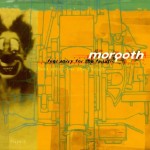 Morgoth – Feel Sorry for the Fanatic
Morgoth – Feel Sorry for the Fanatic
Another case of mid-90s “evolution,” Morgoth ditch the Death Leprosy worship for a sound more akin to Voivod at their most commercial playing Killing Joke at their poppiest. Vocals sound like a parody of Amebix, lots of mumbling and tuneless sung-shouts. Verse-chorus structures and an industrial rock production suggest this band was attempting to cash in on the industrial/cyber image trend of Ministry, Godflesh, and Fetish 69. With waves of label hype behind it, Feel Sorry for the Fanatic failed as only the falsest of marketing hype can. Creating a neutered album with fringe-accessibility to an audience that didn’t exist the year this album was released left the band to fall on its face in embarrassment and dishonorably disband.
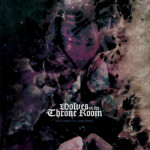 Wolves in the Throne Room – BBC Session 2011 Anno Domini
Wolves in the Throne Room – BBC Session 2011 Anno Domini
This band of hippies in denial have improved in the songwriting department, but by so doing reveal the underlying emo to their music. It’s clearer than ever before that Wolves in the Throne Room were never black metal. This two-song release allows the “post-metal” to shine, but musically “post-metal” is identical to emo, a subset of late hardcore/indie rock hybrids of the late 1980s. Musically, nothing has changed since that time, so if you’ve been in a cave since 1984 you might enjoy this band. These two tracks are far less random than previous Wolves in the Throne Room output. While they try to ape black metal with heavy guitar distortion and howled vocals, in harmony and choice of scale this material would fit in on a Jawbreaker or Rites of Spring album more than any black metal album. In fact it’s a complete sham to ever list this band as black metal because it misses out on what they do well, which is a very slow version of emo. Droning emptiness portrayed with slighly dissonant tracks that sound like self-pity incarnate. It evokes a lot of different feelings that boil down to the same state of suspension, in which mixed-emotions and self-pity that brings self-doubt resolve all things to the same. I wouldn’t recommend this for any metal fan or anyone who remembers the late 1980s.
If you approached a black metal band as if it were a doom metal band, you might end up with something like Solar Deity. Very musically literate in a way that is reminiscent of Necrophobic, with understated melodic riffs and good rhythm, this band nonetheless suffers from a type of drone syndrome where just not enough changes to keep interest, although there’s nothing offensive. Clearly mostly inspired by the first two Gorgoroth albums, Solar Deity attempt to set up a number of songs to narrate and develop theme, and do a reasonable job of it, but their riffs are rather lukewarm and repetition-intensive as is their usage. The result would be great if designed for doom metal, but as black metal ends up being an abrasive drone and sense of confused purpose within otherwise well-composed music. It might be good background music for repetitive tasks. You know, really feel that tedium as you clean water heaters, file taxes or chase hipsters off your front lawn with a shotgun (aim for the knees).
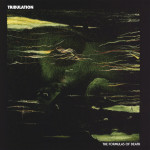 Tribulation – The Formulas of Death
Tribulation – The Formulas of Death
Death metal isn’t hard rock. If it wanted to be hard rock, its members being honest people, it would have elected to simply be that instead. However, there’s a huge market in dressing up regular boring corporate product rock music as something “edgy” like death metal, which still hasn’t been conquered by the civilizing forces of socialization. Like previous Tribulation releases, The Formulas of Death is ambiguously in the death metal realm and in fact treats its death metal elements with ironic scorn. The result is a pretty good hard rock band embedded in a bunch of unnecessary stuff. Get a real vocalist, throw out the token chromatic riffs and d-beats, and re-style this album as something along the lines of early Queensryche or Cinderella and it would be great. This will make just about every “Best of 2013” because people can’t tell the difference between turd and steak tartare but also because it’s catchy. Simple music for simple minds.
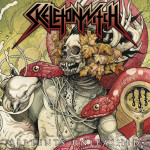 Skeleton Witch – Serpents Unleashed
Skeleton Witch – Serpents Unleashed
If focus groups found a way to slam Sentenced Amok and At the Gates Slaughter of the Soul into a metalcore product that panders to Adult Swim viewers, then Skeleton Witch would be the abomination unleashed. Tired and generic riffs more bound to cliche than tradition power an interchangeable series of mellow-deaf parts stitched into galloping rhythms. Although it appears to be like metal from a distance, I suspect if MC Hammer knew how to play a guitar, he’d come up with something like this. Poppy and bouncy background noise for people who value video games and Comedy Central more than music, Serpents Unleashed might be the sonic equivalent of a middle schooler’s diary: covered in stickers and glitter, but the content within is more than predictable in essence even if not in particulars, and in ten years it will humiliate them if unleashed.
The problem with retro works is context. What was once a whole context is broken down into techniques, “moments,” transitions, tempo changes, riff-archetypes and melodic frameworks, and then reconstituted. However, since there’s no motivation except to be retro, there’s no new context except appearance. Thus the bands doing this tend to default to the simplest elements possible, which are either age-independent but average stuff the original genre tried to escape or conventions of the present age. The result is that you get the same stuff, but someone has covered it in retro-feeling-stuff. The end result is like a bison spray-painted with corporate logos, a contextless mishmash that’s oblivious to its own true nature. Beyond make a credible effort but they are trying to fit riffs together, not use riffs like words or colors on a painting, and as a result, nothing is communicated by frenetic energy, doubt and disorganization. Moments of this release are stunning, but the whole does not add up to much because it’s not about anything.
12 CommentsTags: Black Metal, death metal, emo, Heavy Metal, metalcore, sadistic metal reviews

